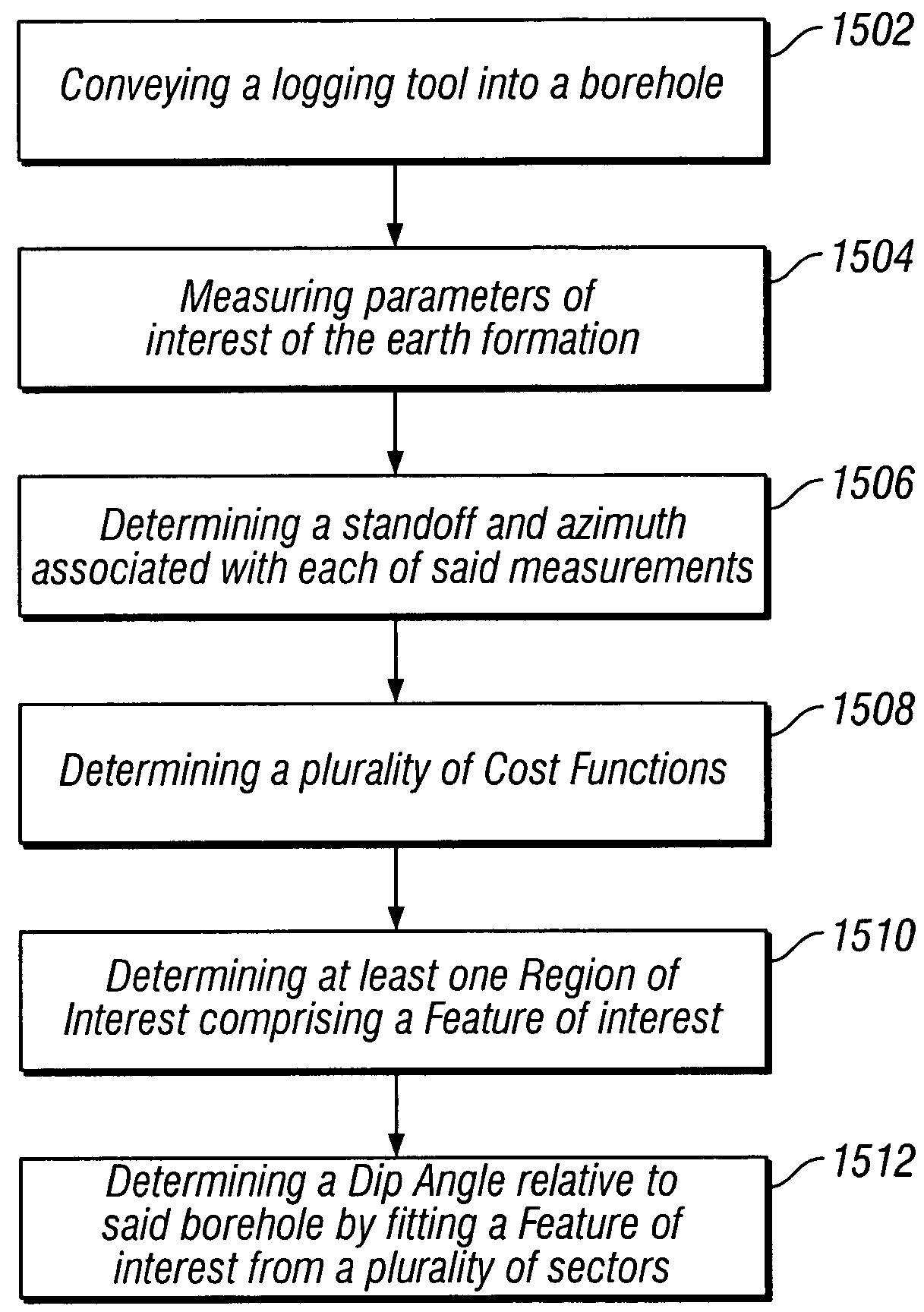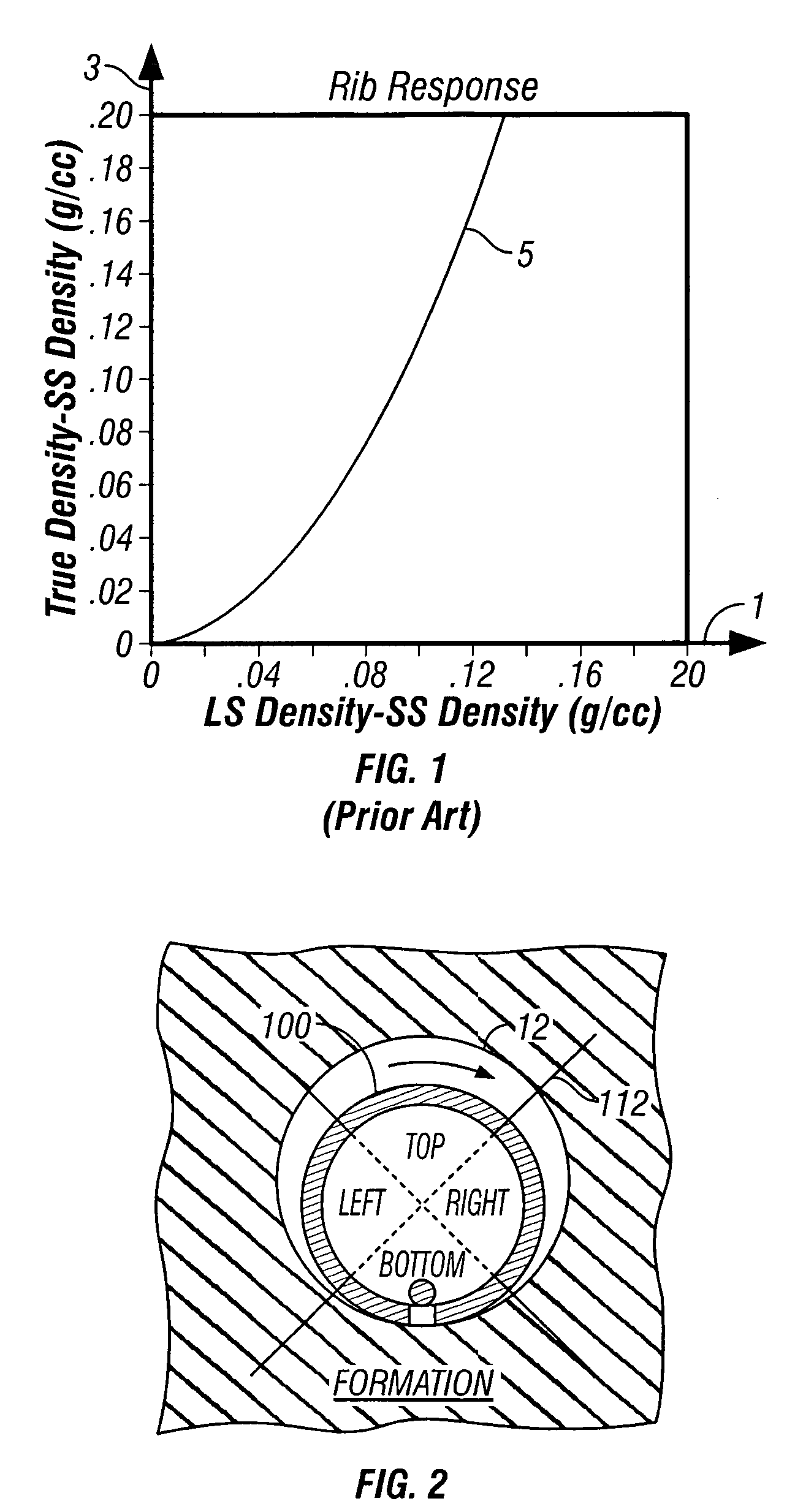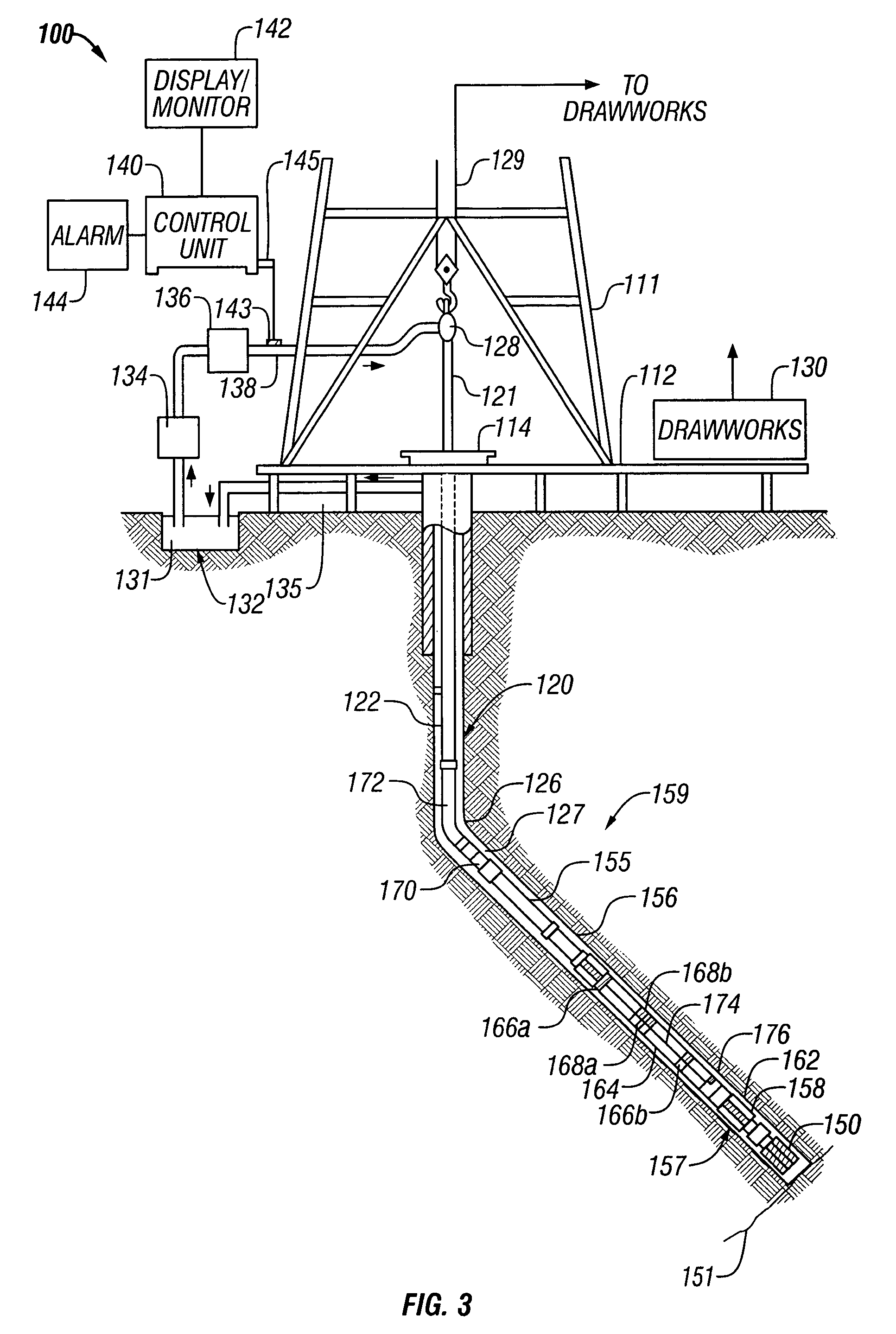Apparent dip angle calculation and image compression based on region of interest
a dip angle and region technology, applied in the field of borehole logging equipment, can solve the problems of loss of drilling time, measurement is typically, and the cost involved is high, and achieve the effect of efficient acquisition of prospective areas
- Summary
- Abstract
- Description
- Claims
- Application Information
AI Technical Summary
Benefits of technology
Problems solved by technology
Method used
Image
Examples
Embodiment Construction
[0042]FIG. 3 shows a schematic diagram of a drilling system 110 having a downhole assembly containing an acoustic sensor system and the surface devices according to one embodiment of present invention. As shown, the system 110 includes a conventional derrick 111 erected on a derrick floor 112 which supports a rotary table 114 that is rotated by a prime mover (not shown) at a desired rotational speed. A drill string 120 that includes a drill pipe section 122 extends downward from the rotary table 114 into a borehole 126. A drill bit 150 attached to the drill string downhole end disintegrates the geological formations when it is rotated. The drill string 120 is coupled to a drawworks 130 via a kelly joint 121, swivel 118 and line 129 through a system of pulleys 127. During the drilling operations, the drawworks 130 is operated to control the weight on bit and the rate of penetration of the drill string 120 into the borehole 126. The operation of the drawworks is well known in the art ...
PUM
 Login to View More
Login to View More Abstract
Description
Claims
Application Information
 Login to View More
Login to View More - Generate Ideas
- Intellectual Property
- Life Sciences
- Materials
- Tech Scout
- Unparalleled Data Quality
- Higher Quality Content
- 60% Fewer Hallucinations
Browse by: Latest US Patents, China's latest patents, Technical Efficacy Thesaurus, Application Domain, Technology Topic, Popular Technical Reports.
© 2025 PatSnap. All rights reserved.Legal|Privacy policy|Modern Slavery Act Transparency Statement|Sitemap|About US| Contact US: help@patsnap.com



